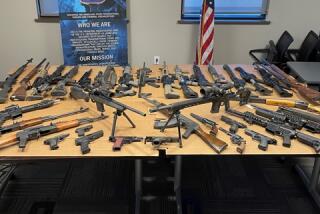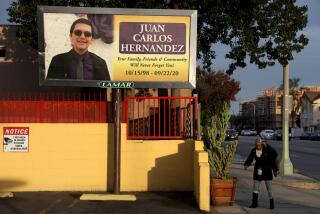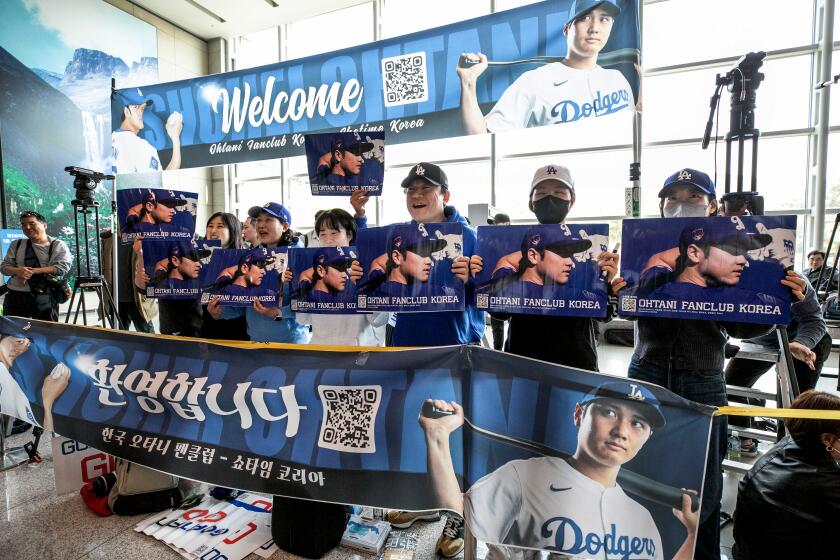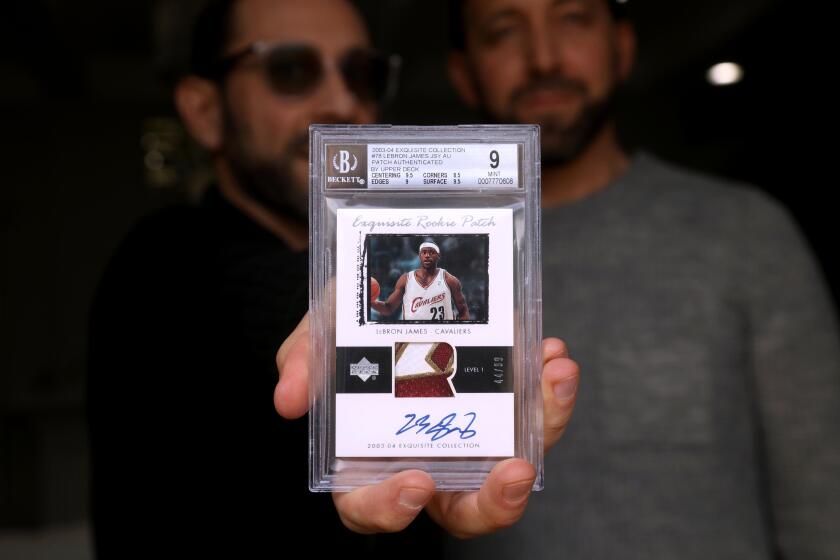How a man’s death in Beverly Hills exposed a sprawling Hollywood drug delivery business
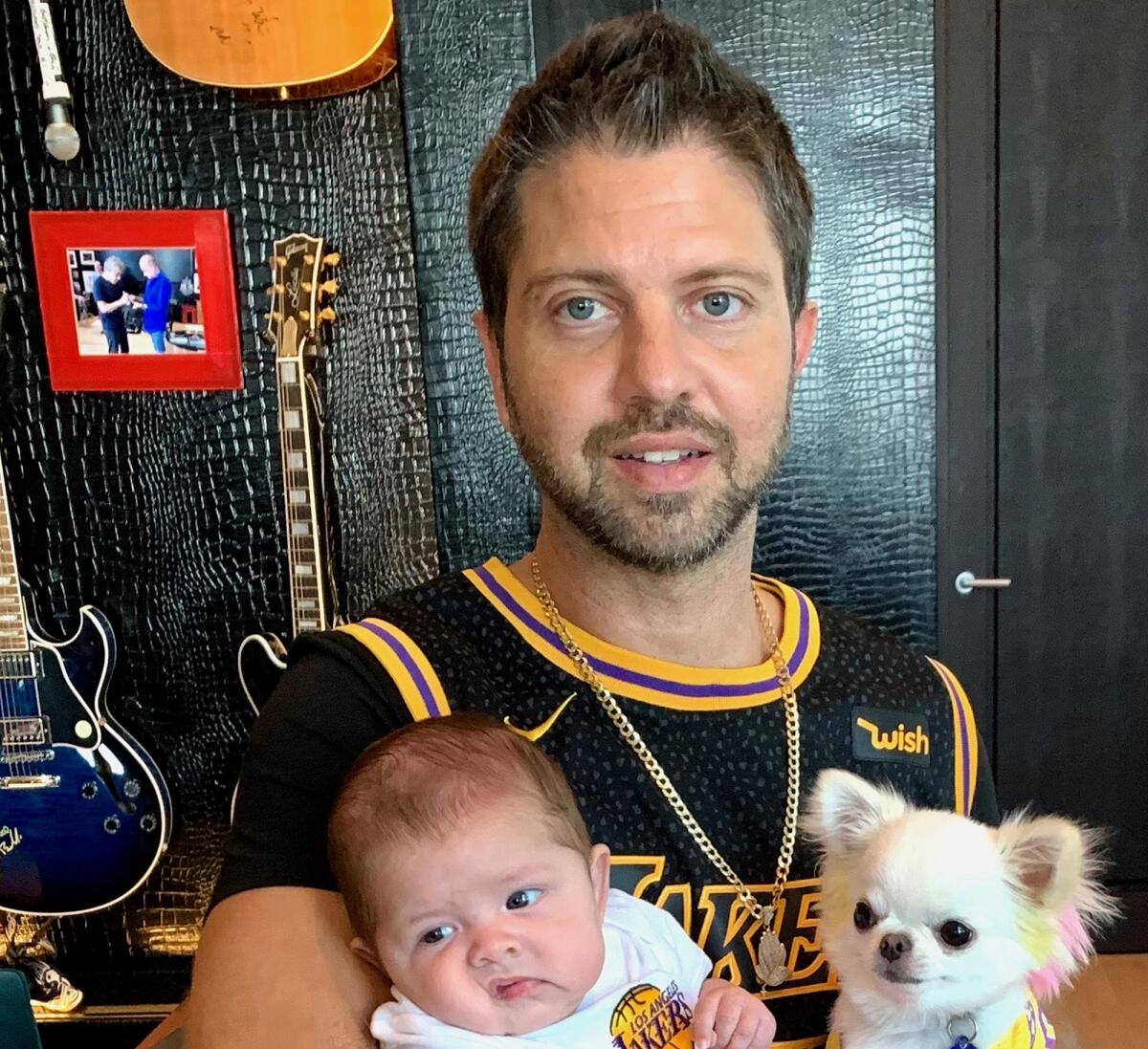
Ray Mascolo was spending a Sunday evening at home in Beverly Hills with his Chihuahua puppy, Versace, when his yearlong stretch of sobriety came to an end.
“What’s good babe,” Mascolo, 37, texted a woman listed in his iPhone as “Mimi Snowie.”
She replied with a menu offering acid ($40), ecstasy ($20), mushrooms ($120) and half a dozen other drugs.
They cut a deal: a gram of cocaine and two oxycodone pills for $160, plus a $30 delivery fee. Mimi, whose full name is Mirela Todorova, dispatched an aspiring television actor, Kather Sei, to drop off the drugs, authorities say.
The next morning, a maintenance worker walked into Mascolo’s house on North Beverly Drive. The Chihuahua led him to Mascolo’s body on the kitchen floor. The drugs had been laced with fentanyl.
Mascolo’s November 2020 death set in motion a federal investigation that uncovered a booming drug delivery service Todorova is accused of running from her apartment on Hollywood Boulevard.
Sei, 36, who played a patrol cop on an episode of the CBS series “S.W.A.T.,” was one of about 19 drivers employed by Todorova to fan out nightly across Los Angeles, filling clients’ drug orders in eight-hour shifts, the U.S. Drug Enforcement Administration alleges in court papers.
With a business model resembling a food delivery app, Todorova, 33, used Venmo, PayPal and other payment platforms to collect more than $733,000 from customers in her last year of dealing, the DEA says. At the operation’s peak, an agent told a judge, she ordered a $152,000 Tesla.
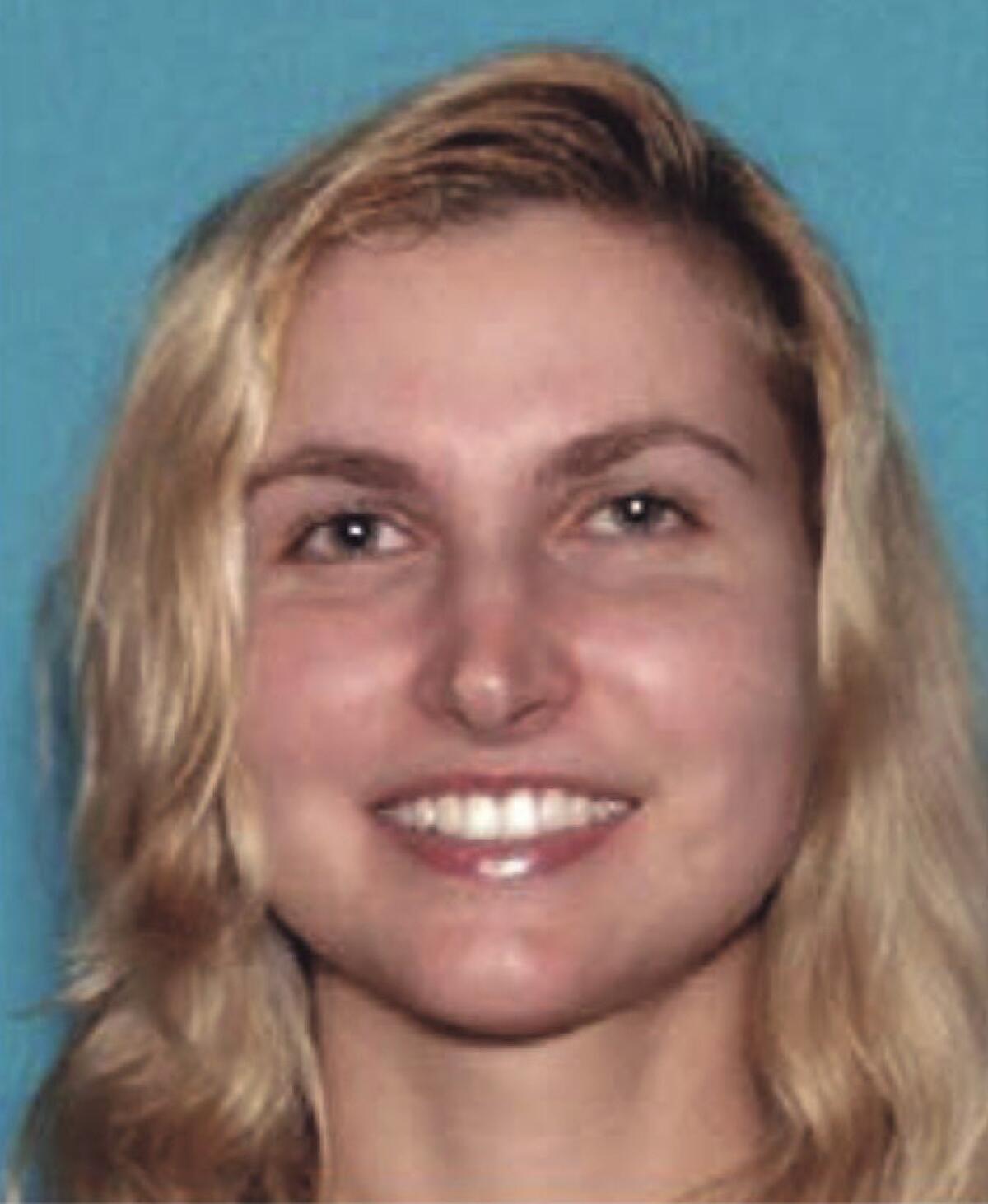
But the tech-driven efficiency that made the enterprise so lucrative also led to its unraveling: Todorova, Sei and many others left a long trail of evidence on smartphones, laptops and the servers of Apple, T-Mobile and AT&T, court records show.
On Thursday, a federal grand jury indicted Todorova and Sei on charges of distributing the fentanyl that caused Mascolo’s death and conspiring to sell drugs. Sei was arrested on Saturday. His attorney, Barry Hammond, denied that Sei played a role in Mascolo’s death.
“These charges are overblown,” Hammond said. “He was not involved and had no direct knowledge of what was going on.”
Todorova was arrested 11 months ago and has been jailed since then awaiting trial on related cocaine and MDMA distribution charges. She pleaded not guilty Monday to the new charges. A judge set her trial date for May 3 after she objected to her lawyers’ consent to a date in October.
“I’m sorry, I’ve been in jail for so long,” she said.
Alex R. Kessel, one of her attorneys, has said she “had absolutely nothing to do with distributing drugs that caused anybody’s death, let alone Mascolo’s.”
The night Mascolo died, Kessel said, Todorova was in a beach town on Mexico’s Yucatan Peninsula, where she was raising her pet jaguar, Princess.
Kessel accused a Mexican boyfriend of Todorova’s of using her name and mobile phones to disguise his drug sales.
“There’s other people much larger and more involved than Ms. Todorova,” Kessel told a judge last month in an unsuccessful attempt to secure her release on bail.
In the weeks before Mascolo’s death, three customers told Todorova that they believed her “Oxy blue” oxycodone pills were contaminated with fentanyl; she reassured them the pills were “real and safe,” according to text messages cited by prosecutors in court papers.
“Yo mimi the oxys are dirty,” one customer texted her in October 2020.
Subscribers get early access to this story
We’re offering L.A. Times subscribers first access to our best journalism. Thank you for your support.
Mascolo was one of an estimated 100,000 Americans who died of drug overdoses in the year ending in April 2021, a record high, according to the Centers for Disease Control and Prevention. The growing prevalence of fentanyl in cocaine and fake oxycodone pills has driven the rapid rise in deaths.
In California, the pills are often manufactured in cartel-run chemical labs in Mexico, the DEA says. The blue tablets are commonly stamped “M” on one side and “30” on the other to look like pharmaceutical oxycodone. Anyone who takes one and unwittingly ingests fentanyl, a synthetic opioid, can be killed.
In Mascolo’s case, he left behind a 4-month-old daughter.
In one of his final texts, Mascolo told Todorova that he needed to pick up his daughter first thing in the morning. He and the baby’s mother were living apart and sharing custody. His failure to show up led to the discovery of his body.
“He was such a loving dad,” said his mother, Kyara Mascolo. “She was 100% his everything.”
*
Until her arrest, Todorova enjoyed dance clubs, raves, beach resorts, exotic cocktails and flashy cars, her social media feeds show. Driving a Lamborghini convertible “is harder than it looks!” she told followers in a post with a video from behind the wheel. Her holiday destinations included Miami and Ibiza, the island nightlife playground off the Mediterranean coast of Spain.
She is the daughter of Bulgarian immigrants who settled 20 years ago in a Newbury Park tract house at the western edge of the Santa Monica Mountains. In 2011, she earned a bachelor’s degree in molecular biology from UC San Diego. Three years later, she got a dual master’s degree — business administration, and biotechnology and bioinformatics — at Cal State Channel Islands in Camarillo.
Todorova, who had Bulgarian, Canadian and American passports, spent weeks at a time in Mexico. How she came to raise Princess at an animal park in Playa del Carmen near Cancun is unclear.
“I’m in Mexico with my jaguar for the next couple days,” she told a customer seeking ecstasy a few days after Mascolo died. “But my driver is available.”
Todorova’s Hollywood apartment, across Argyle Avenue from the Pantages Theatre, functioned as a makeshift drug lab where she would dilute, weigh and package clients’ orders, according to text messages cited in the indictment. The only driver she trusted with “kitchen duties” while she was in Mexico was Sei, she once told the actor.
During one trip, the texts show, she instructed Sei to cut some cocaine with the lidocaine she kept under a sink; bake some ketamine, or Special K, in her oven; and use a hammer and blender to make MDMA, also known as molly or ecstasy.
Sei was born in Sierra Leone in West Africa and grew up in New Jersey. He dropped out of Rutgers University and started an acting career in New York City, where he got parts in low-budget productions, including “Brooklyn Is in Love,” a decade ago on YouTube.
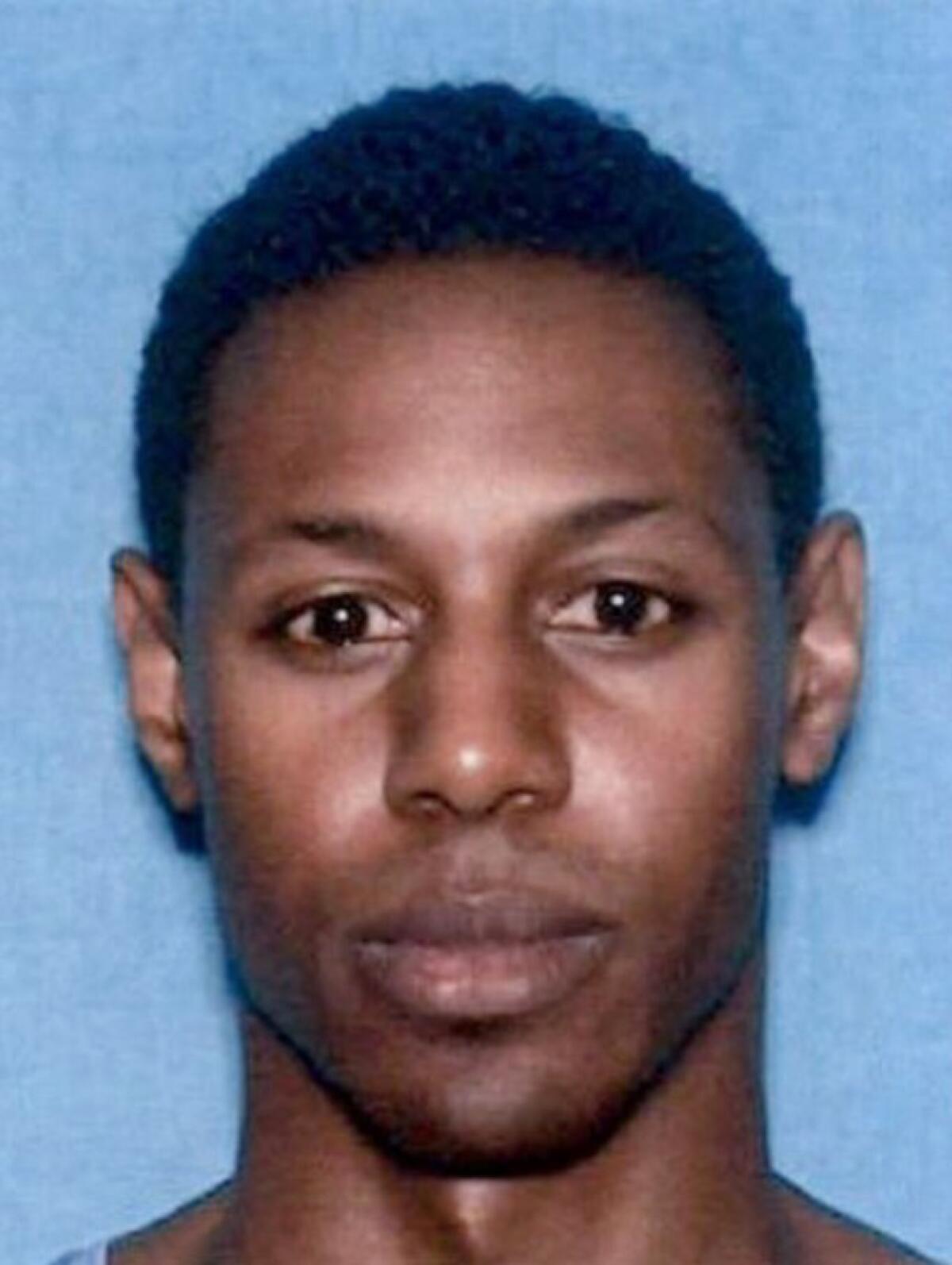
After moving to Los Angeles, Sei scraped to get by. He had just two lines in his 2018 role on “S.W.A.T.” The two TV parts he got after that were also tiny, both of them on Netflix shows — “Lucifer” in 2019 and “I Think You Should Leave With Tim Robinson” in 2021.
A night’s work as a courier for Todorova paid $200 to $300, the text traffic says.
“Please take this job seriously,” she once told Sei, scolding him for missing a shift. “It’s a job like any other job.”
Mascolo, listed in Todorova’s iPhone as “Ray Client Rich Kid,” was raised in Dallas by his wealthy parents, Bruno and Kyara Mascolo. They are co-founders of Bed Head hair products. Bruno Mascolo’s family — Italians who migrated to London in the 1950s — built a fortune from the Toni & Guy chain of salons and hairdressing schools.
Ray Mascolo struggled for years with substance abuse, but stayed sober during the year of his baby’s birth. His family believes stress triggered the fatal relapse.
He knew Todorova for at least a couple of years. They were Facebook friends. On Nov. 15, 2020, the night he bought the drugs that would kill him, Mascolo urged Todorova to personally deliver them.
“I gotta new puppy and new Beverly Hills crib you would love,” he wrote. “Versace.” He sent her two photos of the Chihuahua, then asked for more “Oxy blues.”
*
The hunt for Mascolo’s drug dealers started with evidence police found on his kitchen counter, including a rolled-up $10 bill and blue tablets. What remained of his drugs tested positive for fentanyl, lab reports confirmed.
A few days after Mascolo died, a pair of DEA agents drove to his family’s mansion, wedged into a steep hillside above the Sunset Strip. They interviewed his parents and retrieved his phones. Within days, family assistants guessed the password to his laptop, gaining access to his iCloud account. His texts with “Mimi Snowie” gave agents their first break.
Apparently unaware he was dead, Todorova texted Mascolo a few weeks later: “I have C, K, pink 2CB, M, E, Addy, xan, norcos, blues, acid, Viagra, liquid G, and mushrooms (raw, chocolate or candy) Most payment methods Accepted.” In the meantime, customers kept grumbling about fentanyl tainting their drugs.
Undercover Los Angeles Police Department officers working with the DEA tried to catch Todorova by texting her a request for “blues” and “blow.” “Im friends with alex,” a cop told her.
“Text me his number to verify,” she replied.
“I lost my phone and contacts this is my new number.”
“Oh sorry I can’t help you. I don’t know if this Alex Is my friend or not.”
On her return from a trip to Mexico in March, Todorova was questioned by customs officers at Los Angeles International Airport. She told them she’d been vacationing at Temptations Resort in Cancun, tending to her jaguar at a zoo nearby and planning a house purchase. She claimed she’d lost her cellphone and gave customs her parents’ number instead of her own.
Seven federal agents and local police officers soon began following Todorova around Los Angeles, court records show.
When she parked on South Las Palmas Avenue in Hancock Park, agents saw a man get into her passenger seat for a few minutes, then leave. They watched another man do the same thing in West Hollywood, then another at the Park La Brea complex in Mid-Wilshire. With a warrant to track her phone location, the agents caught up with Todorova each time she vanished in traffic.
After they stopped tailing her that night, the digital monitoring logged her phone’s travels to Santa Monica, Pasadena and Koreatown before she returned home at 2:30 a.m.
The next week, DEA agents followed her into a Bank of America branch in Los Feliz, where she collected three stacks of cash and left with the money in a white envelope.
Todorova then headed for the 101 Freeway and drove to South L.A., agents in tow. Agents watched from a distance as she walked into a building on West Adams Boulevard with a white envelope, came back outside and entered another building nearby. She returned to her car with a big plastic bag.
A DEA source has identified the second building as a drug stash house for the Tijuana-based Arellano Felix cartel, a federal agent wrote in court papers.
Nine days later, officers tailing Todorova in an LAPD patrol car pulled her over at a Mobil station on Franklin Avenue. Police handcuffed her. Two DEA agents approached. They told her they were executing a search warrant at her apartment down the street.
The drugs they reported finding there — 944 grams of cocaine, 96 grams of MDMA, 90 grams of ketamine, mushrooms, and nine bags of pills and capsules, including an “Oxy blue” that tested positive for fentanyl — were key evidence.
But it was Todorova’s iPhones that exposed the vast scope of her operation.
*
On the phone seized from her car, agents found all the texts Mascolo got from “Mimi Snowie,” the DEA reported in court papers. They also saw that drug menus like the ones he received had been sent to many other presumed customers.
Some were told what kind of car a drug courier would be driving when it arrived at the client’s home. Others were invited to come pick up their orders on the street behind Todorova’s building. Todorova, the texts showed, did some of the driving herself.
Also on the phone were 19 contacts labeled with the word “Driver.” One of them, identified by the DEA as Courier A, had been spotted during surveillance of Todorova and agreed to cooperate in the investigation.
Todorova paid drivers $37.50 an hour, the courier told the DEA. At the start of a shift, she would provide a bag of drugs, then replenish the supply later if needed. The courier once texted Todorova that the evening’s allotment of “C” — cocaine — was almost gone.
“Ok when you run out come back to my place,” she responded.
Courier A also told the DEA that Todorova gave each driver a “work cellphone” to text with customers on delivery details.
The phone was linked to Todorova’s iCloud account, so both she and the driver could exchange texts with a buyer, who would not know that messages were coming from both her and the driver. She saved a drug menu on the driver’s phone each night, and only Todorova was allowed to offer discounts, the courier explained.
Before long, agents realized that a gold-colored iPhone taken from the entry hall of Todorova’s apartment must have been the “work” phone used by the driver who delivered the drugs to Mascolo.
It had pinged off a cell tower near his Beverly Hills home that night — right when Mascolo received a text from “Mimi Snowie” saying: “Driver outside.”
Agents now needed to figure out which driver was using the gold phone that night.
They soon suspected it was the courier listed in Todorova’s contacts as “Kather Driver,” whose number belonged to Mucktarr “Kather” Sei; it turned out that another phone that pinged off the cell tower near Mascolo’s house during the drug delivery was Sei’s personal iPhone.
Video from the Ring security camera outside Mascolo’s house showed a white Honda Civic with tinted windows arriving and leaving at the exact times indicated in his texts about the drug deal. A DEA agent went into the garage of Sei’s apartment complex in Koreatown and photographed a white Civic with tinted glass parked in his spot. Sei was the registered owner.
Yo mimi the oxys are dirty
— Customer’s text to Mirela Todorova.
A Sunset Boulevard traffic camera captured a white Civic passing the Beverly Hills Hotel heading in the direction of Mascolo’s house just before the drug deal, and so did another one moments later at Coldwater Canyon Park. Traffic cameras recorded the car heading in the opposite direction just afterward.
Phone records revealed hundreds of calls between Sei and Todorova, making him one of her most frequent contacts. They exchanged thousands of dollars on payment apps, including Venmo, where her name was “clubmimi” and his was “AKoolKat,” the DEA says.
Online, agents scrolled through Sei’s TV credits on IMDb, Facebook and Amazon. A surveillance team watched him walk into an acting studio in Hollywood.
After eight months of digging, the DEA got a warrant to seize more iPhones and other evidence in a Dec. 7 predawn raid of Sei’s apartment, yielding another trove of texts detailing day-to-day workings of the delivery service.
Todorova and Sei are accused of breaking a law — distributing drugs that caused a person’s death — that carries a mandatory minimum prison sentence of 20 years. Their prosecution comes as federal authorities are trying to raise public awareness of the danger from black-market pills and cocaine laced with fentanyl.
“It’s the deception now that’s killing people,” said Bill Bodner, the agent in charge of the DEA’s Los Angeles field division.
If Todorova or Sei expressed concern about fentanyl endangering customers’ lives, it has not emerged in any of the texts that have surfaced in the court case.
“Hey you gave me fentanyl last night,” a client told Todorova a few weeks after Mascolo died. “Just got out of the hospital don’t sell that oxy which is fentanyl.”
“Thanks for letting me know,” she replied.
The same day, another customer told Todorova, “just a heads up those blues are very bad. I ended up super sick.”
Four days later, the indictment says, Todorova sent Mascolo — for the second time since he died — another menu offering to sell him cocaine and “Oxy blues.”
Times staff writer Matt Hamilton contributed to this report.
More to Read
Start your day right
Sign up for Essential California for news, features and recommendations from the L.A. Times and beyond in your inbox six days a week.
You may occasionally receive promotional content from the Los Angeles Times.

